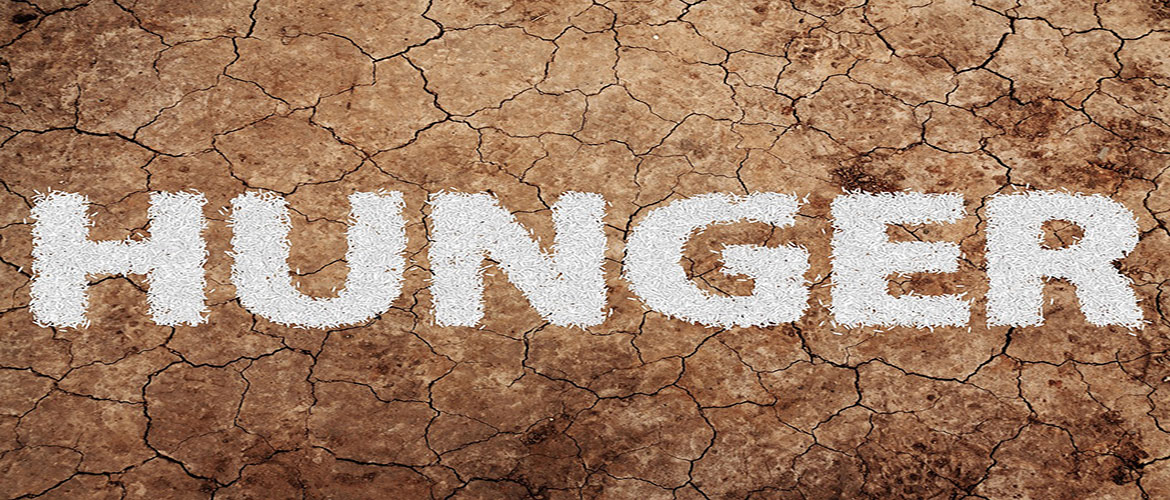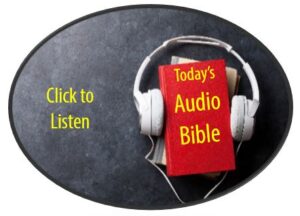
Good Monday to you my “Walking with Jesus” friends,
With our attention drawn almost exclusively in 2022 to the horrific and devastating war in Ukraine; and now in the past several weeks, the tremendous devastation of war in the Middle East, the major issues of South America, Africa and Asia have rarely caught our attention. If I had to choose one word for the single priority issue in much of Africa it would be the word ‘hunger’.
The organization “World Vision” declares: “Conditions are deteriorating across East Africa, where 7.2 million people are at risk of starvation and another 26.5 million face acute food insecurity. At least 12.8 million children in the region are acutely malnourished.” (https://www.worldvision.org/
The organization “Concern Worldwide” makes this statement: “In the final months of 2022, 70% of the world’s hungriest people are located in just three countries: Ethiopia, Kenya, and Somalia. (https://concernusa.

Hunger has been a persistent problem in many parts of the world for millennia and today, as we continue seeking to gain a Biblical perspective of what is happening in the region of Israel today, let’s remain in the era of the “Judges” but move to the Bible story of Ruth, found in the book which bears her name. It begins this way: “In the days when the Judges ruled there was a famine in the land, and a man from Bethlehem in Judah, together with his wife and two sons, went to live for a while in the country of Moab. The man’s name was Elimelech, his wife’s name Naomi…” (Ruth 1:1)
Let’s pause for a moment and reflect. Can you think of other Biblical accounts of people in Israel whose lives were directly affected by famine and hunger? Remember Jacob moved his whole family to Egypt, at Joseph’s invitation, to survive a 7 year famine? (Genesis 42-46) Remember a three year drought caused a famine in the days of Elijah the prophet? (1 Kings 18) In the New Testament, Barnabas and Saul brought a financial gift to help the starving people in Judea. (Acts 11:27-39)
Drought causing famine and starvation is a horrific reality, and when it happens people will do drastic things to feed their families, including leaving home and moving to a dangerous place. That’s what Elimelech did and it’s happening today in several parts of Africa!
In case you are wondering, YES, the Bethlehem in which Elimelech and Noami raised their sons is the very same Bethlehem where Joseph and Mary went to register for the census and Mary gave birth to Jesus, about 1100 years later. (Luke 2) It is also the very same modern-day Bethlehem which thousands of tourists visit each year, located just south of Jerusalem.
The country of Moab, to which Elimelech and Noami fled to escape the famine, is the modern-day Kingdom of Jordan, to the east of Israel, on the east side of the Jordan River. Jordan, you’ll remember, has had a volatile relationship with Israel since the UN created the modern state of Israel in 1948. May I give us a brief word of explanation about the people who lived in this region Moab to which Naomi and her husband fled?
Genesis 18,19 gives us the horrific story of Lot and his family living in Sodom when God sent angels to draw them out of Sodom before its destruction by fire from heaven due to its horrible wickedness. With the cities destroyed, and his wife killed in the process, Lot moved up into the mountains with his two daughters. Fearing they may never find husbands but wanting children both daughters got their father Lot drunk and became pregnant by him. The two sons born out of that terrible evil were named Amon and Moab. (Genesis 19:36-38)
The large tribes of people who descended from those two boys settled near each other east of the Jordan river and were known as the Ammonites and the Moabites. A third tribe of people settled to the south of them known as the Edomites and they were the descendants of Jacob’s twin brother Esau. (Genesis 36) All three people groups were persistent enemies of Israel and were idol worshipping, immoral, wicked people. Yet in times of famine, people will seek shelter and food anywhere, even in dangerous places, thus Elimelech and Naomi took their family from quiet Bethlehem east, into dangerous Moab.

While the Biblical record does not give us details, life for Elimelech, Naomi and their sons was very difficult in Moab. “Now Elimelech, Naomi’s husband, died and she was left with her two sons. They married Moabite women, one named Orpah and the other Ruth. After they had lived in Moab about 10 years, both Naomi’s sons also died, and Naomi was left without her husband and her two sons.” (Ruth 1:3-5)
The very harsh reality of drought and famine is that people die. Sometimes the result of starvation for lack of food, other times due to difficulties faced in the dangerous places to which they fled to escape the famine. I’m sure it’s not difficult for us to imagine the gut wrenching pain Naomi now lived with each day as all three men in her life were dead and she was in a foreign, dangerous country far from home. Widows in those days had only family to depend on for help. Now, Naomi had nothing and no one to help her. If there is a word beyond despair, that is what I presume Naomi was living in.
But with God there is always HOPE, right? The Ruth record continues: “When Naomi heard in Moab that the LORD had come to the aid of His people by providing food for them, Naomi and her daughters-in-law prepared to return home to Bethlehem from Moab. With her two daughters-in-law Naomi left the place where she had been living and set out on the road that would take them back to the land of Judah.” (Ruth 1:6,7) Look at them. Three women each carrying as many bundles as they can, perhaps even walking beside a donkey pulling a cart with their belongings, heading west, toward the ridge of the Moab hills, from which they would be able to see the Jordan river valley and Israel. But it would be a very long, rugged walk, perhaps 50 miles or so to go from where they lived in Moab to Bethlehem.
As they walked, they talked. Naomi was old, but these two young women still had the potential for marriage and a family, and Bethlehem would be for them the dangerous foreign place that Moab had been for Naomi. So, she urged them to turn back and go live with their parents and extended families while she would journey on ahead, alone.
They talked, they wept, they paused to rest, and finally “Orpah kissed Naomi good-by, but Ruth clung to Naomi. Naomi said to Ruth, ‘Look, your sister-in-law is going back to her people and her gods. Go back with her.” (Ruth 1:14,15) Goodbyes are so difficult aren’t they, my friends? Can you feel their hearts tearing here? Orpah has turned now and is beginning her homeward journey, hoping her family will receive her.
But something different happens in Ruth’s heart. Perhaps she did not have a loving family to return to, perhaps she had an irresistible sense of responsibility to care for old Naomi? Whatever the cause, Ruth said some words which have become immortalized as the ultimate in relationship commitment: “Ruth replied, ‘Don’t urge me to leave you or turn back from you. Where you go, I will go, and where you stay, I will stay. Your people will be my people and your God my God. Where you die, I will die, and there I will be buried. May the LORD deal with me, be it ever so severely, if anything but death separates you and me.’ When Naomi realized that Ruth was determined to go with her, she stopped urging her.” (Ruth 1:16-18)

Let’s pause here with these two dear women, resting under a tree, looking west and planning their journey together. Ruth has made a profound statement, releasing her allegiance or claim to being a Moabite woman, and embracing her commitment to walk with Naomi till death separates them, even though this would mean learning to live with peace and purpose in Jewish Israel.
Over the past many years millions of non-Jewish Middle Easterners have lived in Israel, most of them with peace and purpose among Jewish Israelis. Some identified themselves as Arabs, some as Palestinians, some as Muslims, some as Christians. And then came the Hamas attack of October 7. Suddenly the relative peace has been destroyed.
As Naomi and Ruth looked down from those Moab mountains toward the Jordan river valley and beyond, they had no idea that God was not only guiding an old widow home to Bethlehem with a Moabite daughter-in-law in tow, God was weaving together a much bigger, much more significant story of HOPE, as we will see tomorrow.
As we pause today, how has God worked in the story of YOUR life? I wonder, what God is doing these days to awaken HOPE in those caught up in the ongoing wars in Ukraine, Israel, and the famines and tribal wars in Africa? Here’s a song to help us ponder that…
Bible images provided with attribution to www.LumoProject.com.
Have a comment or question about today’s chapter? I’m ready to hear from you, contact me here.

Pastor Doug Anderson
“Let us run with perseverance the race marked out for us, with our eyes fixed on Jesus…” (Heb. 12:1,2)
Archived back issues of “Walking with Jesus” and other resources are available by clicking here to open our ‘home page’ (or go to HOME at upper right of this page).
Share with friends. Subscribe below for daily “Walking with Jesus”.


